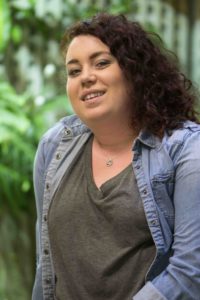Camosun College is hoping to raise awareness for students struggling with mental health, substance use, or learning challenges through the Living in Our Shoes: Mental Health and Substance Use Stigma Reduction Project, which will run from September to February on both campuses. The project will consist of lunchtime talks where a panel of three or four people who have obtained a degree of stability in their mental struggles will speak about their experiences and self-care strategies that help them cope.
Camosun College Student Society women’s director Melanie Winter—who lost her father to suicide nine years ago—says Camosun is “fighting stigma one student at a time.”
“I was volunteering in suicide prevention, and so I just decided, you know, we all struggle with something, and if we just had more conversations about it, maybe we could open that dialogue,” she says. “I’m not saying that would ever change my dad’s circumstances, but had the conversation been around when I was younger, maybe it wouldn’t have happened.”

After nine years without her father, Winter says that she can now “turn around and put that pain into purpose.”
“It was at those developmental years of my life,” she says. “It definitely left me feeling like, ‘Why wasn’t I enough? Why couldn’t I save you?’ It was a really great education piece in understanding, compassion, and empathy.”
Winter says she is hoping her work in promoting mental-health awareness will help people realize that the answer lies in compassion, and that suicide does not get rid of the pain for those struggling; it merely passes it on to loved ones.
“For me, helping other people is what helps me just come to terms with what happened,” she says. “Maybe they can see the pain it’s causing and they won’t do it to their own kids.”
Camosun Nursing instructor Allison McLeod is part of the college project; she says mental health has always been a big part of the nursing program at Camosun.
“Any time I’m teaching anything, I’m trying to relate it to [mental health]. If you have a patient in for heart challenges or cardiac functioning, it doesn’t mean they don’t have a mental-health challenge along with that. Or do they have a learning challenge? How are you going to approach their education around taking care of their health?”
McLeod—who has lived with ADHD for over 20 years—says combating mental health is “a full-time job on top of a full-time job.”
“It is about hard work, but there are a lot of people out there that have mental-health [challenges] and learning challenges that perhaps we don’t know about. I’d like people to start talking about that more, saying, ‘I’m successful, I’ve got a great career, and I’ve been struggling with anxiety for the last 20 years,’ that it does take hard work, but it also takes a lot of skill, a lot of support, and a lot of strength. And people can do it.”
McLeod says the only thing that comes from feeling shame and embarrassment around mental health is more suffering.
“I think people deserve a lot of respect for the amount of effort they put in, not just for getting through the day,” says McLeod. “I’ve had people come forward, and say—these are employees—they come forward and say, ‘I want to tell my story.’ I think it’s really important for students to hear that they can do it, that they can get through it.”
The first talk is on Wednesday, September 28 from 11:45 to 12:45 am at room LLC 151 in the Lansdowne library.
